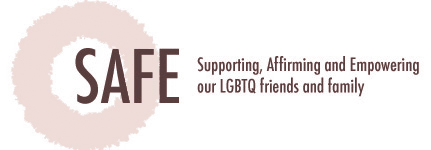|
| FAQs for Friends |
What do you do if your friend says to you:
“ Do you remember the thing that I wanted to tell you the other day?
Well *sigh* do you still want to know? I don't know if it’s a good idea to tell you.
*breathe deeply*
I’m gay. And yes, I can’t do anything about it. Okay, are you still there? Good, I had to tell you one day. I couldn’t hide it from you anymore; it became too heavy a burden for me to bear.
You’re my best friend and the only person that I could tell. I’m sure you’re thinking "Why do I have a friend like this, why don't I have a friend who is normal?" and well, I can tell you that it’s because you’re a great person, someone I trust a lot.
Before I knew you, I would never have thought of revealing my secret to anyone. I’ve wanted to tell you for a long time but was afraid of your reaction. Believe me that it is not at all easy to live like this. I am again at that stage of asking myself why am I in this world if I have to live a hidden life.
Why me? I’m not in any hurry for my parents to find out. Wow, such disappointment it’ll be for them. And there’s not one day where I don't think about my homosexuality, my future with my family, and the rest. It pains me. Please, don’t be angry with me.”
.....
If your friend comes out to you, be a true friend in return. Here are a few suggestions how you can show your friendship and support for him/her:
• Understand your own feelings about LGBTQ issues
• Understand why you feel it is important to support your LGBTQ friends
• Understand how heterosexism and homophobia affect both gay people and straight people
• Understand your social location, prejudices and privileges
• Learn more about the LGBTQ community
• Talk with friends informally and openly about lgbtQ events or issues in the news or in movies
• Critically consider media presentations of LGBTQ issues and write the appropriate parties with complaints, suggestions or praise
• Use inclusive language like "partner" or "date"
• Don't "out" people unless given permission to do so
• Don't make assumptions; ask about things you don't understand
• Talk with and learn from gay friends, classmates and colleagues
• Interrupt, confront or react to heterosexist or homophobic jokes, slurs, comments or assumptions, both privately or publicly
• Provide correct information when you hear myths and misperceptions about gay people
• Participate in LGBTQ events and campaigns
• Stay close to your LGBTQ friends; they need your support! |
|
|
|
|
|
|
